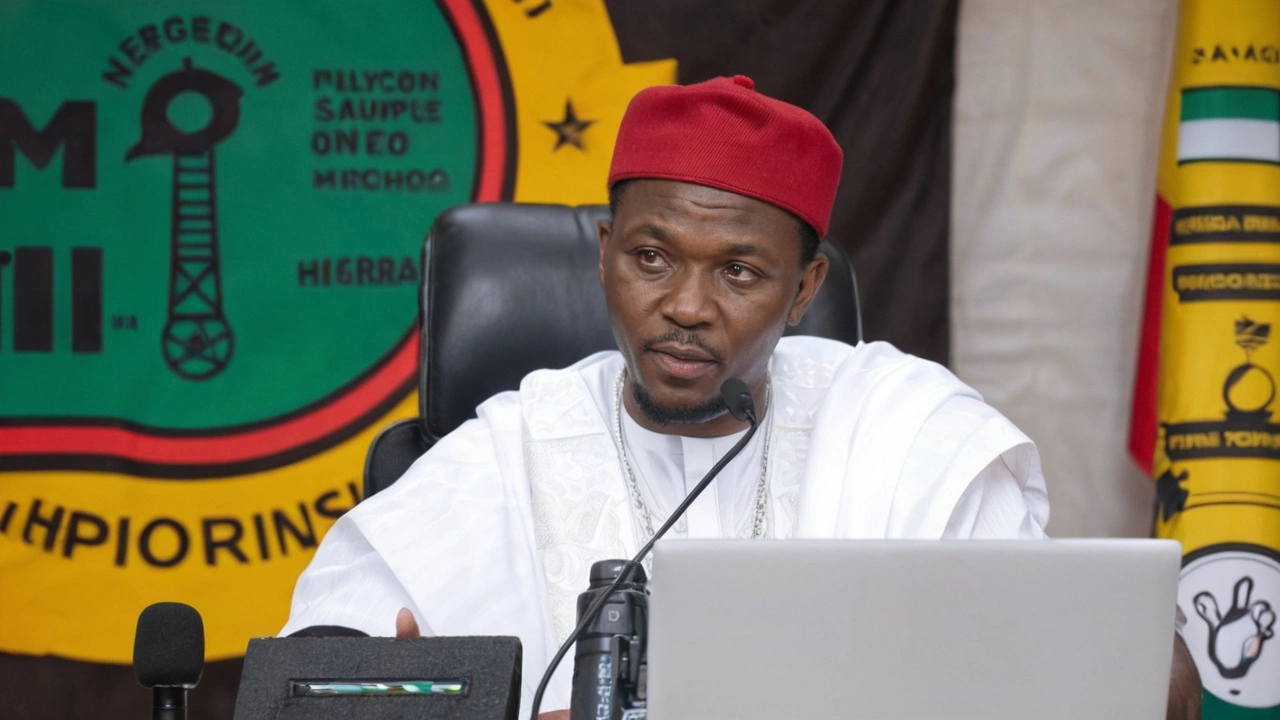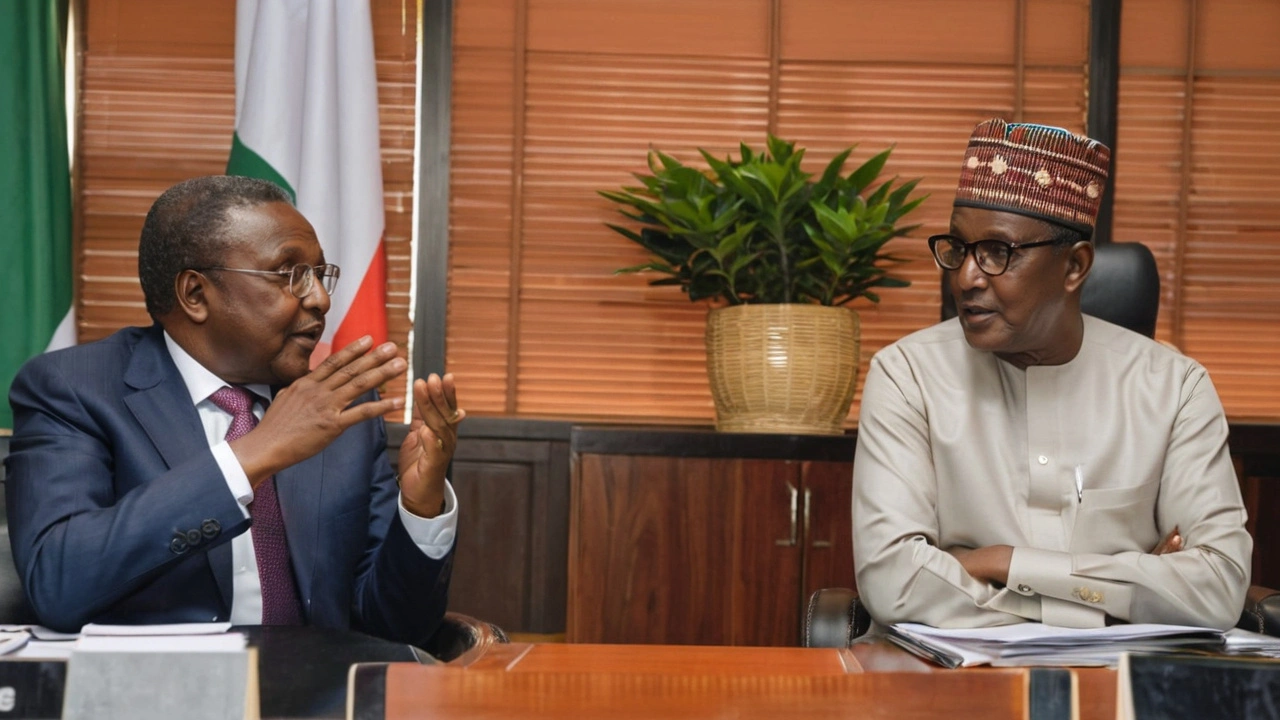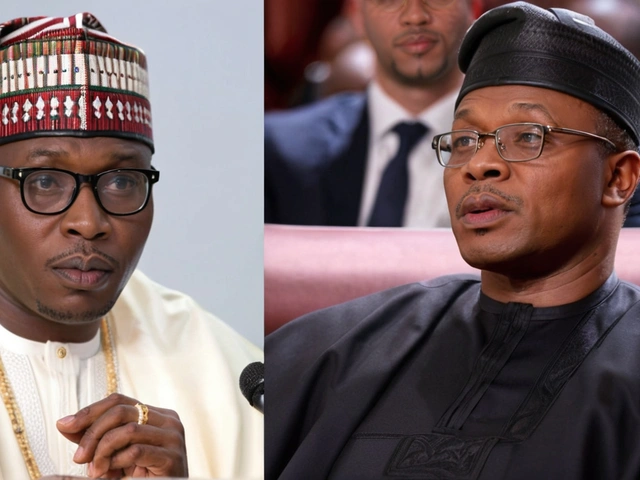Kyari's Firm Denial
Mallam Mele Kyari, the Group Chief Executive Officer (GCEO) of Nigerian National Petroleum Company Limited (NNPC), has strongly refuted claims that he owns a petroleum blending plant in Malta. He also denies knowledge of any NNPC employee engaged in such an activity. The allegations originated from Aliko Dangote, the President of Dangote Group, who suggested that some NNPC staff and traders have established a blending facility in Malta. According to Dangote, this overseas venture has been a stumbling block to local procurement of petroleum products.
Kyari took to the social media platform, X, to set the record straight. He stated unequivocally that he only operates a small-scale agriculture venture locally and has no involvement or stakes in any blending plant, be it in Malta or elsewhere. This statement was intended to quell any rumors and misunderstandings about his affiliations and the activities of NNPC employees.

Differentiating Fact from Fiction
The allegations laid out by Dangote imply a significant conflict of interest and raise questions about the integrity of NNPC's operations. However, Kyari has made it clear that any blending plant in Malta has no influence on the business operations and strategic decisions of NNPC. This distinction is critical for maintaining the credibility of the company, especially in an industry as scrutinized as petroleum.
Addressing the claims directly, Kyari emphasized that the NNPC is committed to transparency and upholding stringent regulations. He assured that if any employee is found involved in any unauthorized overseas ventures, particularly those that could affect local procurement, they would be subject to the NNPC's compliance sanction grid. This grid is designed to enforce accountability and discipline among employees, ensuring that personal interests do not interfere with national and corporate interests.

Enforcement and Compliance
In his social media statement, Kyari recommended that any NNPC employees involved in unauthorized activities should be made public and reported to the relevant government security agencies. This step is considered crucial for maintaining the integrity of the company and safeguarding its operations from unwanted influences. The NNPC's compliance sanction grid will be the guiding framework for dealing with such issues, reinforcing the company's commitment to ethical practices.
The petroleum industry, especially in a country as large and resource-rich as Nigeria, often finds itself in the crosshairs of various interests. Transparency and compliance are essential for maintaining public trust and ensuring fair business practices. Kyari's public declaration is part of an ongoing effort to uphold these values and protect the NNPC's reputation.

The Larger Picture
This controversy comes at a time when the global energy market is volatile, and the role of national petroleum companies is crucial. Ensuring that these companies operate without internal strife and maintain external integrity is vital for economic stability. Allegations like those made by Dangote can have far-reaching implications, affecting investor confidence and international partnerships. Hence, Kyari's proactive approach in addressing these claims is not just about personal denial but about safeguarding the larger interest of the company and the nation's economic health.
As the situation unfolds, it will be essential to monitor how both the NNPC and Dangote Group navigate these waters. The petroleum sector's dynamics are complex, and any friction within can ripple through the broader economy. Stakeholder communication and consistent enforcement of compliance will play pivotal roles in mitigating any adverse effects.
Moving Forward
Looking ahead, the situation underscores the need for robust systems that prevent conflicts of interest and ensure transparency. For Kyari and the NNPC, this episode serves as a reminder of the importance of stringent oversight and clear communication channels. It's a call to all involved, from employees to top executives, to prioritize ethical standards and align with the company's and the nation's best interests.
The broader implications of this controversy highlight a fundamental truth about the petroleum industry: trust and integrity are as valuable as the resources themselves. As stakeholders await further developments, the focus will be on how effectively the NNPC can maintain its commitment to these principles while navigating the challenges that come with operating in a globally significant industry.





Post A Comment